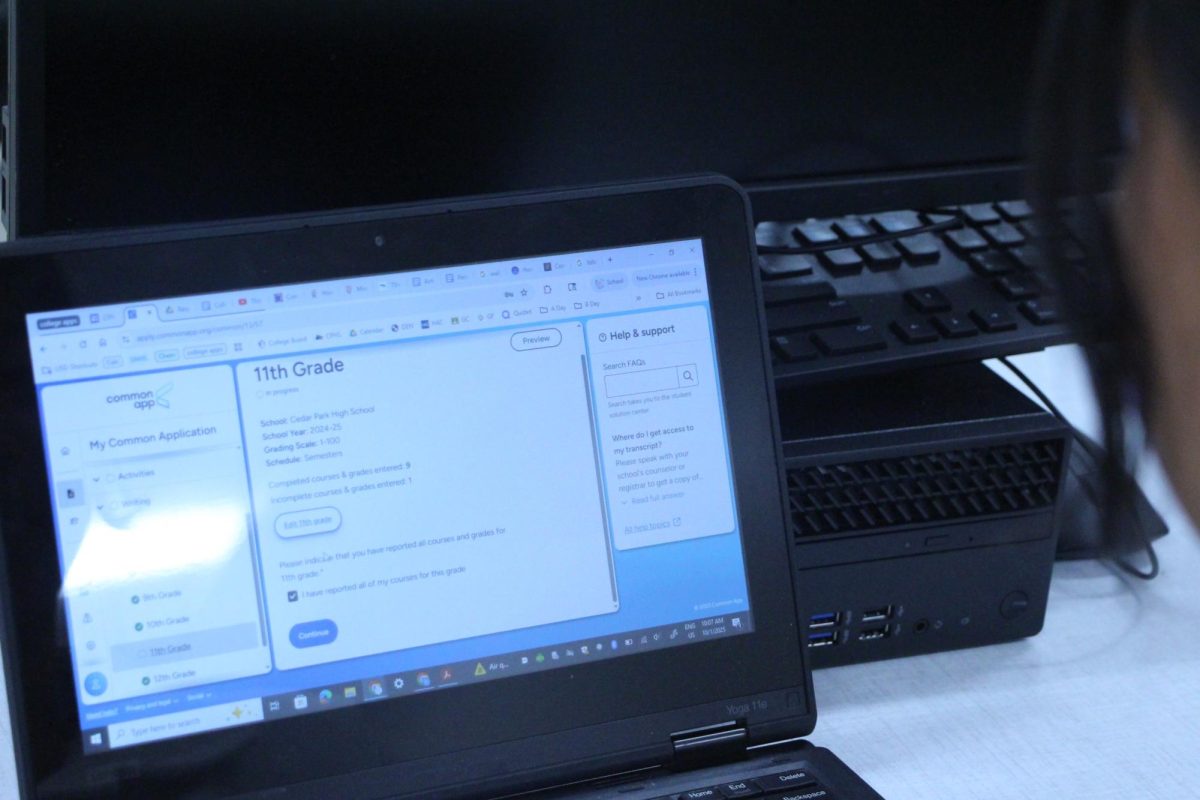Students are now expected to remain in their DEN classes for the entirety of the free period after a new protocol was announced Feb. 23 by Associate Principal Tereasa Back.
The rule requires teachers to lock their doors at the start of DEN and not allow any students in or out of the classroom until 10:25 a.m., unless someone needs medical attention. Students are encouraged to schedule their restroom breaks before or after DEN. Any student who does not get to DEN on time at 9:50 a.m. will be moved to the cafeteria for DEN-tention, and students who arrive at school during DEN will be instructed to wait in the front office until the period is over.
If these new guidelines mean the school will let students keep DEN as a study hall, they should stay in place.
DEN, a 35-minute-long free period students are given, is used in many ways for a variety of purposes. Students use this time to work on homework, make up missed tests and sometimes catch up with friends. Lots of students use DEN to run “errands,” as well, whether that means picking up an assignment from a teacher, visiting with a student teacher or asking the librarian about a tech issue. This morning break is important for students because it allows them to have some freedom with how they spend a portion of their day at school. The unstructured time it offers can be a reliever from the highly-supervised routines most high schoolers follow on an hourly basis.
Since the implementation of the DEN protocol, students have shown unhappiness and even frustration with the rules being heavily enforced. Students were surprised to be sent to DEN-tention after being caught in the hallways after 9:50 a.m. and others did not expect the rules to be taken seriously by their teachers. Regardless, the regulations have been closely followed and transformed the laid-back nature of DEN into a stricter, more orderly one.
Although the new DEN guidelines are not ideal, they are the administration’s way of trying to keep the free period available to students. Due to the increased numbers of students vaping, using drugs, skipping class and hanging around in the hallways, DEN-tention was created to alleviate some of the carefree use of DEN time. Several other schools in the district have already eliminated their equivalent to DEN and if Cedar Park does as well, classes may have longer hours. Students should follow the new rules to show they are capable of using their free time responsibly, and maybe the administration will remove the DEN restrictions altogether.
In all, the DEN regulations are not perfect, but they should be tolerated by students to open up the possibility of them being removed and help keep DEN altogether.










![Broadcast, yearbook and newspaper combined for 66 Interscholastic League Press Conference awards this year. Yearbook won 43, newspaper won 14 and broadcast took home nine. “I think [the ILPC awards] are a great way to give the kids some acknowledgement for all of their hard work,” newspaper and yearbook adviser Paige Hert said. “They typically spend the year covering everyone else’s big moments, so it’s really cool for them to be celebrated so many times and in so many different ways.”](https://cphswolfpack.com/wp-content/uploads/2025/05/edited-ILPC.jpg)





![Looking down at his racket, junior Hasun Nguyen hits the green tennis ball. Hasun has played tennis since he was 9 years old, and he is on the varsity team. "I feel like it’s not really appreciated in America as much, but [tennis] is a really competitive and mentally challenging sport,” Nguyen said. “I’m really level-headed and can keep my cool during a match, and that helps me play a bit better under pressure.” Photo by Kyra Cox](https://cphswolfpack.com/wp-content/uploads/2025/09/hasun.jpg)

![Bringing her arm over her head and taking a quick breath, junior Lauren Lucas swims the final laps of the 500 freestyle at the regionals swimming competition on date. Lucas broke the school’s 18-year-old record for the 500 freestyle at regionals and again at state with a time of 4:58.63. “I’d had my eye on that 500 record since my freshman year, so I was really excited to see if I could get it at regionals or districts,” Lucas said. “ State is always a really fun experience and medaling for the first time was really great. It was a very very tight race, [so] I was a bit surprised [that I medaled]. [There were] a lot of fast girls at the meet in general, [and] it was like a dogfight back and forth, back and forth.” Photo by Kaydence Wilkinson](https://cphswolfpack.com/wp-content/uploads/2025/03/Kaydence-2.7-23-edit-2.jpg)
![As her hair blows in the wind, senior Brianna Grandow runs the varsity girls 5K at the cross country district meet last Thursday. Grandow finished fourth in the event and led the varsity girls to regionals with a third place placement as a team. “I’m very excited [to go to regionals],” Grandow said. “I’m excited to race in Corpus Christi, and we get to go to the beach, so that’s really awesome.” Photo by Addison Bruce](https://cphswolfpack.com/wp-content/uploads/2025/10/brianna.jpg)












